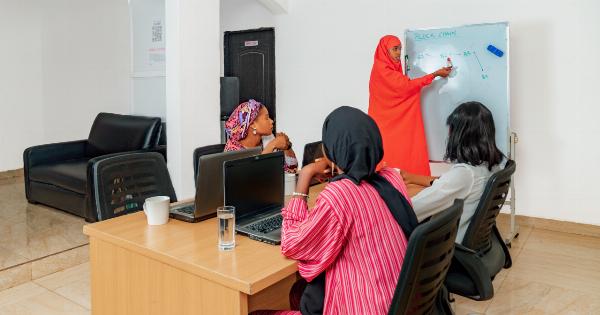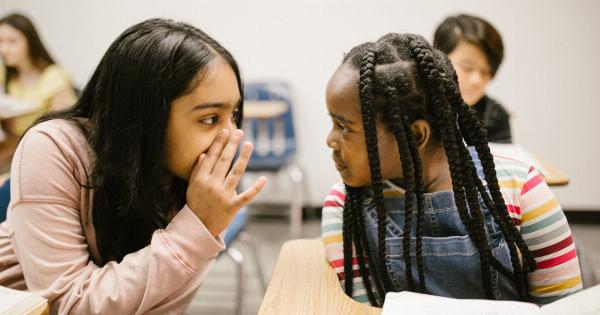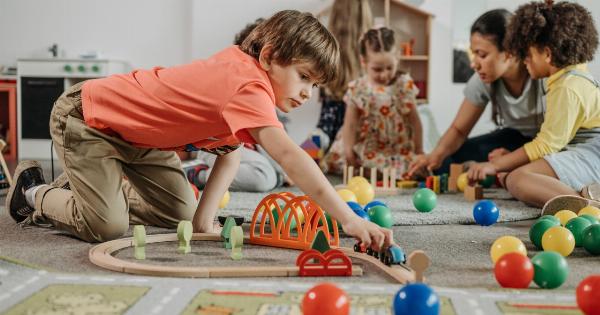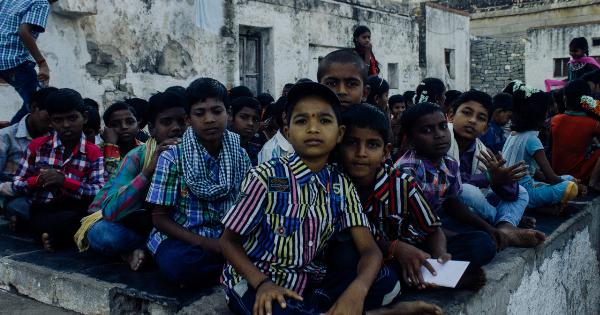Disruptive students can have a significant impact on the learning of their peers and their own academic progress. A disruptive student is one who consistently interrupts classroom activities and causes distractions.
This behavior can lead to a loss of focus among other students, decreased productivity, and a general decline in academic performance. The impact of disruptive students on learning cannot be understated and needs to be addressed to ensure healthy learning environments.
Behavioral Characteristics of Disruptive Students
Disruptive students exhibit a wide range of behavioral characteristics. Some common characteristics include:.
- Talking excessively or exhibiting disruptive behavior
- Being disrespectful towards teachers and other authority figures
- Being physically aggressive or threatening towards others
- Refusing to follow rules and procedures
- Chronic absenteeism or tardiness
Disruptive students may also have underlying emotional or psychological issues that contribute to their behavior.
For example, students who struggle with anxiety or emotional regulation may be more likely to exhibit disruptive behaviors in the classroom.
Impact of Disruptive Students on Learning
The presence of a disruptive student can have a significant impact on the learning of their peers. Students who are distracted by disruptive behavior may miss important information during class or fail to complete necessary assignments.
This can ultimately lead to poor academic performance.
Disruptive students can also cause a decline in student morale. Students may feel frustrated and demotivated when they are constantly interrupted by disruptive behavior.
This can lead to a decline in participation and engagement, as well as a decrease in classroom cohesion.
Teachers may also struggle to manage a disruptive classroom. They may need to spend more time dealing with the disruptive student, which can take away from teaching time.
Additionally, teachers may become frustrated or demotivated themselves, which can also impact classroom dynamics.
Strategies for Dealing with Disruptive Students
Teachers and schools can employ a variety of strategies to manage disruptive behavior in the classroom. These include:.
- Creating a positive classroom environment: Teachers can set clear expectations for behavior and create a positive atmosphere that encourages participation and engagement.
- Using positive reinforcement: Teachers can reward positive behavior to encourage students to follow rules and procedures.
- Implementing consequences: Teachers can establish consequences for disruptive behavior, such as time-outs or loss of privileges.
- Cooperation between teachers and parents: Parents can play a significant role in helping to address disruptive behavior. Teachers and parents can work together to develop strategies to manage the behavior at home and in the classroom.
- Referring to a counselor or mental health professional: If a student’s disruptive behavior is related to an underlying emotional or psychological issue, they may benefit from counseling or other forms of mental health support.
The Importance of Addressing Disruptive Behavior
It is essential to address disruptive behavior in the classroom to ensure a healthy and productive learning environment.
Teachers, parents, and schools need to work together to develop effective strategies for managing disruptive behavior and fostering a positive classroom environment.
By addressing disruptive behavior early, teachers and schools can prevent possible long-term consequences such as social isolation, academic underachievement, and aggression or violence.
Addressing disruptive behavior can also help students develop self-regulation skills that will be useful throughout their lives.
In Conclusion
Disruptive students can have a significant impact on the learning of their peers and their own academic progress.
It is essential for teachers and schools to employ effective strategies for managing disruptive behavior to ensure a healthy and productive learning environment. By working together to address disruptive behavior, we can help students develop the skills they need to succeed in the classroom and beyond.






























